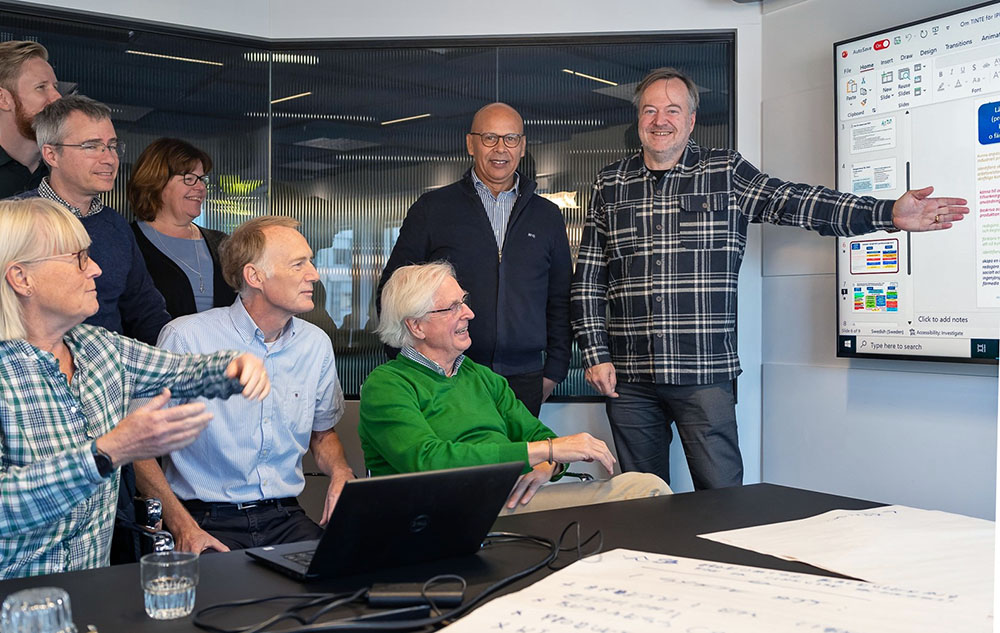New engineering programme focuses on industry collaboration and collective intelligence

KTH launches a new Bachelor of Science in Engineering programme called Industrial Engineering. With admissions starting in the autumn of 2024, a guiding principle throughout the programme will be to combine theory with practical training.
In order for society to cope with future environmental challenges, industry manufacturing must be made more sustainable. The manufacturing industry is becoming increasingly digitised, and artificial intelligence and internet connectivity play an increasingly important role. KTH’s new Bachelor of Science in Engineering programme in Industrial Engineering is part of this digital transformation.
Following major trends
Bengt Wittgren is the programme director for the programme Industrial Engineering (TINTE). He explains that the new programme is KTH’s response to an expressed need from the industry for a skilled workforce.
“The manufacturing industry is undergoing a paradigm shift following the major trends with increased digitisation and the green transition. Our education programmes must keep up, while also attracting students with new kinds of requirements and needs. We have tried to solve this equation in the TINTE programme,” says Wittgren.
When he returned to teaching at KTH after many years in industry, including at AstraZeneca, he was surprised that teaching methods had hardly changed since he himself was a technologist in the 1980s. As a consequence, TINTE takes its starting point in current research on what characterises successful university programmes.
Close collaboration with industry
The programme is a pilot project within KTH’s ‘Future Education’ initiative. It will have close collaboration with industry, and courses directed at both programme students at KTH and lifelong learning participants.
“A fundamental principle throughout the programme is to combine theory with practical training. At the end of each academic year, students will apply what they have learned during the year to solve a real industrial problem. This challenge-based learning helps students understand the applicability of theoretical courses, such as mathematics, where we have previously observed difficulty in passing examinations,” Wittgren explains.
Collective intelligence
Future programme graduates will work in what is known as ‘Industry 4.0’– the fourth industrial revolution. This concept emerged about a decade ago and refers to increased digitalisation and automation in the manufacturing industry, including, among other things, large amounts of data that engineers must be able to handle and interpret. Now, the concept of Industry 5.0 has also been introduced, emphasising the human aspects in an increasingly high-tech environment.
Overall, this places higher demands on the ability to communicate and collaborate to understand complex information. The industry has emphasised that future engineers need to be better equipped to work in collaborative settings, often referred to as possessing a high degree of collective intelligence. This will a part of the programme’s training.
What are the job prospects for those who graduate?
“Job prospects are very good. It is a natural consequence of the programme being developed in close collaboration with industry and with students currently enrolled in similar programmes. We can refine the weak spots in today’s programme and make the new TINTE much more relevant for both students and their future employers.
Translated to English, Swedish text: Peter Ardell ( p3t3r@kth.se )
